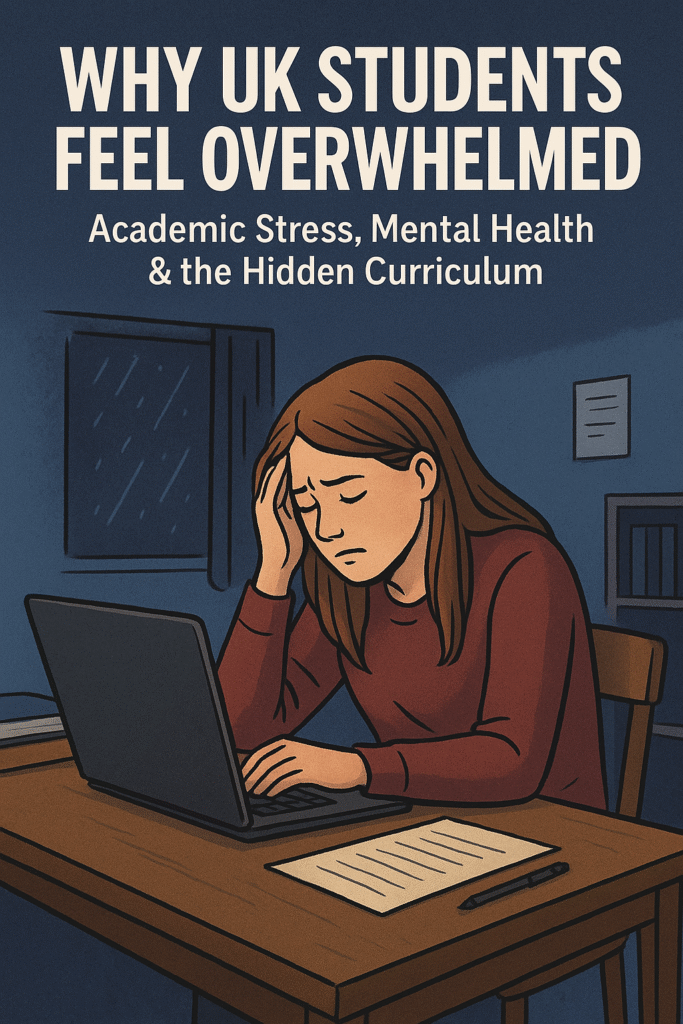
UK students face rising academic stress, financial struggles, and mental health crises — challenges shared worldwide. Discover why higher education feels overwhelming and how platforms like Meet2Share Questions offer solutions through peer support and shared learning.
1. The Silent Struggle of UK Students
Sophie sat in her small Sheffield room, staring at a blank Word document. The cursor blinked accusingly — a reminder she had just 48 hours to submit a 3,000-word essay on European politics. Despite reading the articles, underlining textbooks, and attending seminars, she felt paralysed.
“I should know how to do this by now,” she whispered, scrolling through half-finished tabs. Shame weighed heavier than the assignment itself.
Across the UK — from Aberdeen to Plymouth, Cardiff to Belfast — students are facing a similar crisis. Deadlines pile up, finances tighten, and confidence quietly erodes. While the UK celebrates world-class institutions like Oxford, Cambridge, and Edinburgh, the hidden truth is that many students feel they are drowning in silence.
2. Why Academia Feels Overwhelming Today
It’s tempting to dismiss stress as part of the “student experience,” but today’s academic world pushes far beyond healthy limits.
- Fierce competition. A degree is now a baseline, not a golden ticket. In 2023, the UK graduate job market was described as the toughest in decades.
- Assumed skills. Many students aren’t explicitly taught essay structure, referencing, or critical thinking. International students face even steeper learning curves.
- Global parallels. In India, exam pressure contributes to one of the highest student suicide rates. In the US, debt surpasses $1.7 trillion. In sub-Saharan Africa, students juggle commutes, jobs, and limited resources.
No wonder many now seek academic support beyond the classroom. Peer-driven spaces like Meet2Share Questions allow students to unpack complex topics together — from writing a 3,000-word essay to mastering Harvard referencing.
3. The UK Student Mental Health Crisis
The student mental health crisis has moved from whispers in counselling rooms to national headlines.
- 1 in 4 students reported mental health difficulties in 2022 (ONS).
- 52% felt hopeless, and one-third considered dropping out (NUS, 2021).
- Disclosures of mental health conditions rose fivefold between 2010–2020.
Globally, the picture is similar:
- 60% of US students report overwhelming anxiety.
- Japan struggles with youth suicide linked to academic stress.
- South African protests highlight the emotional toll of exclusion.
While universities offer counselling, long waits leave many unsupported. This is where peer networks help. On Meet2Share, students share struggles without stigma, turning isolation into solidarity.
4. The Hidden Curriculum Nobody Talks About
Beyond lectures lies the hidden curriculum — skills universities assume students already know:
- Structuring an academic essay.
- Referencing in Harvard or APA style.
- Reading dense journal articles critically.
- Asking insightful seminar questions.
For first-generation and international students, this becomes a huge barrier. HEPI research shows that cultural capital, not intelligence, often determines success.
Practical help matters. For instance, one of the most engaged discussions on Meet2Share is about Criminal Law and the Fault Requirement. These peer-to-peer breakdowns make the hidden curriculum visible, helping students move from confusion to clarity.
5. Cost-of-Living Pressures & the Weight of Debt
Even students who manage their studies face another barrier: money.
- UK students spend £924/month, while maintenance loans cover just £485 (Save the Student, 2023).
- Many skip meals, live in overcrowded flats, or sacrifice study time for jobs.
- London students spend more time commuting and working than studying.
Globally, financial stress takes different forms:
- In the US, decades of student debt shape graduates’ lives.
- In India, competitive exams double as financial lifelines.
- In Zimbabwe and Kenya, tuition fees and textbook costs remain major obstacles.
That’s why many turn to free study resources. Online hubs like Meet2Share Academic Questions provide collaborative learning at no extra cost — easing financial pressure while improving academic outcomes.
6. A Global Lesson: From Isolation to Shared Learning
From London to Lagos, New York to New Delhi, students are asking the same questions:
- How do I write stronger essays?
- How do I manage academic stress?
- How do I survive financially?
The struggles differ, but the solutions share a theme: community over isolation.
Platforms like Meet2Share Questions show that higher education doesn’t have to be a solitary battle. By asking questions, sharing answers, and building peer support, students can transform higher learning from a silent struggle into a shared journey.